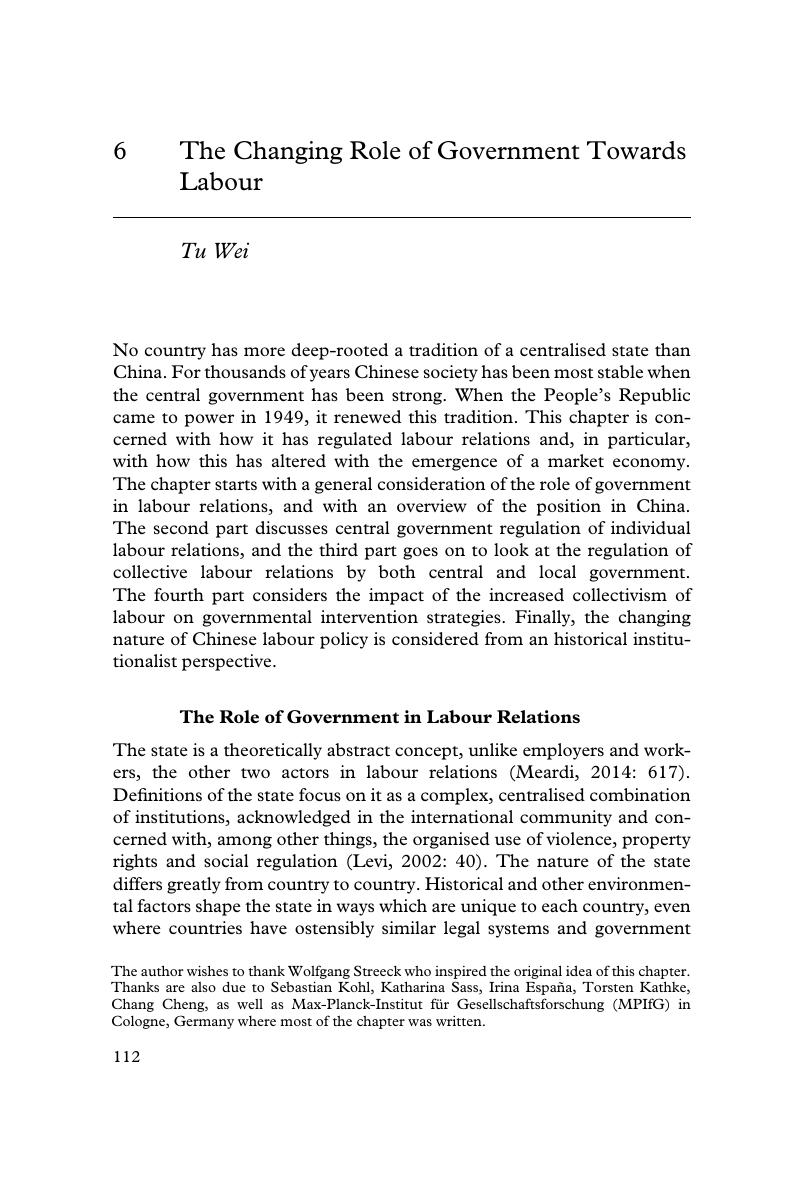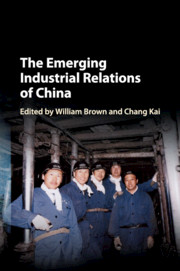Book contents
- The Emerging Industrial Relations of China
- The Emerging Industrial Relations of China
- Copyright page
- Contents
- Figures and Tables
- Contributors
- Preface
- Abbreviations
- 1 What Should We Be Looking for in Industrial Relations in China?
- 2 The Transition to Collective Labour Relations
- 3 The Two Forms of Labour Movement
- 4 The Response of Trade Unions to Market Pressures
- 5 Employer Strategies in Collective Labour Relations
- 6 The Changing Role of Government Towards Labour
- 7 The Development of Collective Consultation
- 8 The Challenges Faced by Employee Participation
- 9 Strikes
- 10 Going to Market
- 11 Conclusion
- Index
- References
6 - The Changing Role of Government Towards Labour
Published online by Cambridge University Press: 30 August 2017
- The Emerging Industrial Relations of China
- The Emerging Industrial Relations of China
- Copyright page
- Contents
- Figures and Tables
- Contributors
- Preface
- Abbreviations
- 1 What Should We Be Looking for in Industrial Relations in China?
- 2 The Transition to Collective Labour Relations
- 3 The Two Forms of Labour Movement
- 4 The Response of Trade Unions to Market Pressures
- 5 Employer Strategies in Collective Labour Relations
- 6 The Changing Role of Government Towards Labour
- 7 The Development of Collective Consultation
- 8 The Challenges Faced by Employee Participation
- 9 Strikes
- 10 Going to Market
- 11 Conclusion
- Index
- References
Summary

- Type
- Chapter
- Information
- The Emerging Industrial Relations of China , pp. 112 - 140Publisher: Cambridge University PressPrint publication year: 2017
References
- 1
- Cited by



